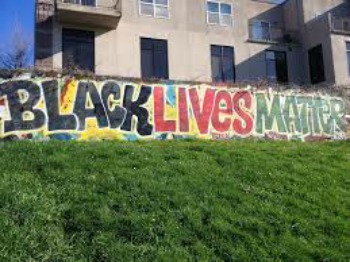It is a difficult time in the United States nowadays. The nation has never been as divided regardless of the absence of civil unrest. While terrorist threats abound and are just disasters waiting to happen, tension among Americans themselves is at a boiling point because of political disagreements. It is not uncommon for family or friends to unfriend and block each other on social media because of their disagreements when it comes to politics and current events.
 Among the most prominent critics of the new admiration is the Black Lives Matter movement. Society claims that racism is already a thing of the past but the truth is that it’s actually far from over. If you just scour social media, you can see why the black lives matter came to be and how they’ve been protesting all over the country until now. But the question is, do they really still matter today?
Among the most prominent critics of the new admiration is the Black Lives Matter movement. Society claims that racism is already a thing of the past but the truth is that it’s actually far from over. If you just scour social media, you can see why the black lives matter came to be and how they’ve been protesting all over the country until now. But the question is, do they really still matter today?
Even in the splintered and often fractious world of social justice movements, Black Lives Matter doesn’t fit easily into existing categories. Few grassroots uprisings have done as much, in such a short period of time, to focus attention on long-neglected issues of racial justice, gender, and economic inequality. Yet so far, BLM has not followed up on its initial victories by building the kind of lasting, hierarchical organizations that grew out of the civil rights movement; nor has it dedicated itself to a single, easily identifiable goal, like enacting the Voting Rights Act. How are we to make sense of organizers who themselves remain so loosely organized? And if Black Lives Matter isn’t devoting itself primarily to bringing about substantive legal and legislative change, then how can it hope to transform its resistance into lasting and meaningful gains in human rights?
Not just your typical protest group, they have tapped into all corners of the country, fighting for causes that are more defined. Black Lives Matter conquered social media and took advantage of this powerful tool to spread their message and what they are fighting for. While the nation remains divided, they aim to unite the nation by fighting for better reforms, equality and social justice.
But BLM has moved beyond many of the blind spots and shortcomings of its predecessors, embracing the full complexity of black identity and forging a movement that is far more inclusive and democratic than either the Panthers or civil rights activists ever envisioned. Many of its most active leaders are queer women and feminists. Its decentralized structure fosters participation and power sharing. It makes direct links between the struggles of black Americans and the marginalization and oppression of women, those in LGBTQ communities, and other people of color. It has made full use of the power and potential of social media, but it has also organized local chapters and articulated a broader political agenda.
Last summer, following critiques that they had failed to put forth specific demands, BLM activists and affiliated organizations published “The Movement for Black Lives,” a detailed and ambitious agenda. Divided into six parts, it includes a host of interconnected demands: a shift of public resources away from policing and prisons and into jobs and health care, a progressive overhaul of the tax code to “ensure a radical and sustainable redistribution of wealth,” expanded rights to clean air and fair housing and union organizing, and greater community control over police and schools. More detailed than the ten-point program issued by the Black Panthers, the BLM policy agenda offers a remarkably pragmatic yet potentially revolutionary blueprint—one that it aims to implement through the concerted use of both protest and politics.
While we all advocate for equal opportunities and treatment to everyone whether you are an American citizen or an immigrant, there would always be some form of racism that is ingrained in every society.
Black Lives Matter says recent incidents involving police and Syracuse residents show there is still progress to be made with equality in the justice system. The group protested alleged police brutality today outside the city’s federal building. They’re calling for justice for last year’s Father’s Day shooting and an alleged rape by a police officer.
We can only dream of a time when world peace can be achieved for real. It is unfortunate for us to still witness cases of discrimination and racism still being prevalent in our modern times when technology even allowed mankind to conquer space and the depths of the ocean. Why is it so hard for us to accept one another without prejudice and learn to live in harmony for all the days of our lives?
As long as there is inequality in society, activists like the Black Lives Movement will continue to fight for their rights and initiate protests so their voices can be heard by those in power. While it is hard to tell which side is right or wrong, what we need to remember is that we should still see the good and others and help those in need that regardless of the political climate, our personal opinions, and any issues we may face in society. Only in complete acceptance can we achieve the peace that remains to be out of our reach.
Do Black Lives Still Matter? Find more on: The Keating Economics Website
source https://www.keatingeconomics.com/do-black-lives-still-matter/
No comments:
Post a Comment